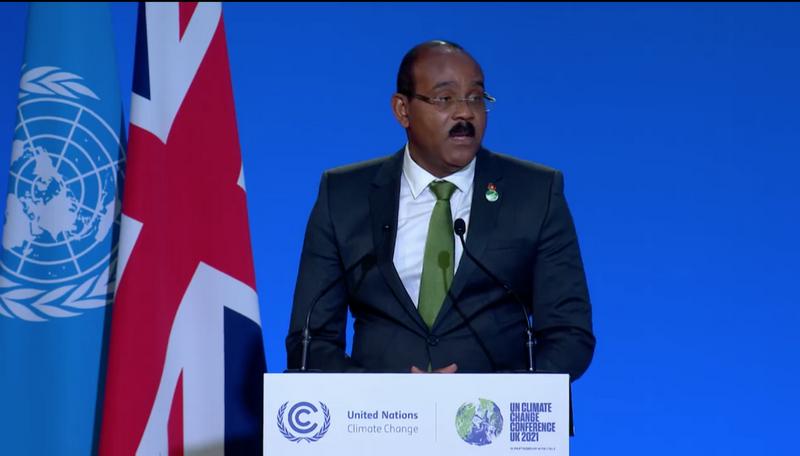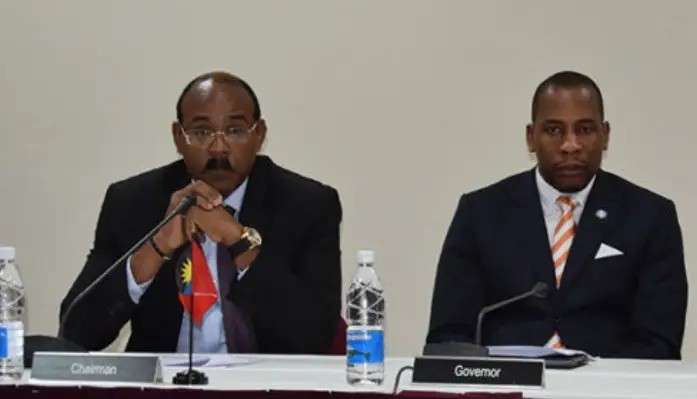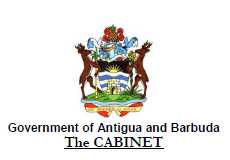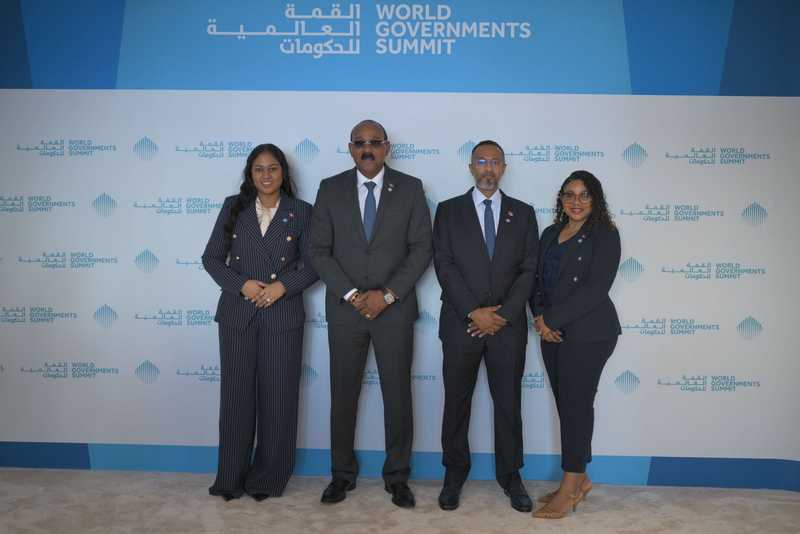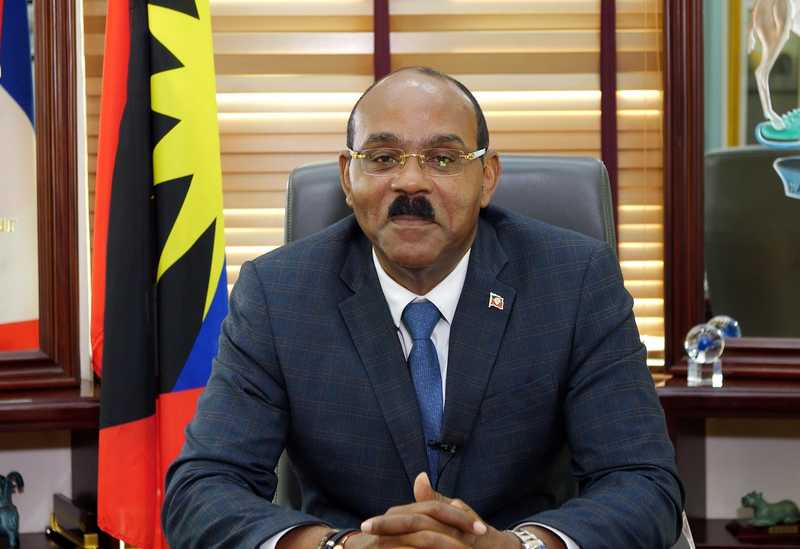COP26 WORLD LEADERS’ SUMMIT 2021
Statement to by the Honourable Gaston Browne, Prime Minister of Antigua and Barbuda and Chair of the Alliance of Small Island States
November 1, 2021
Excellencies
Ladies and Gentlemen
I make this statement on behalf of the Alliance of Small Island States.
And, I begin by thanking the Government of the United Kingdom for hosting this important World Leaders’ Summit – from which much is expected.
Small island developing states attend this meeting troubled, that the world is teetering dangerously on the precipice of a climate catastrophe, if we overshoot the 1.5 degrees goal, with fatal consequences for all, especially SIDS.
Those effects have been evident in more frequent catastrophic climate events that have decimated lives and livelihoods.
The difference between small island developing states and industrialized nations, is the capacity to respond.
It takes a single storm, a few hours to destroy the economy and infrastructure of an entire small island state, which lacks the necessary financial and other resources to rebound and rebuild.
Colleagues, this is now the perennial experience that small island developing states suffer, through no fault of their own.
This situation has weakened our ability to plan our economic and social development with predictability.
Colleagues, I remind that the contribution of all small island developing states to carbon dioxide emissions and climate change, is less than one per cent of the global emissions.
Our countries are the least liable for the damage to the world’s environment; but we pay the highest price.
I recall the words of Aristotle: “The greatest injustices, proceed from those who pursue excess”.
Surely, the time has come for such excesses and injustice to end.
Colleagues, the scale of funding for climate adaptation and mitigation has been sadly inadequate; it needs to be increased significantly, if justice is to be served.
AOSIS calls for direct attention to loss and damage at this COP, as a distinct issue in its own right, not just on the margins of adaptation.
Such loss and damage have persisted for decades, but compensation has been neglected by the governments of the worst polluting countries, for far too long.
Should no formal mechanism for loss and damage compensation be established, member countries of the United Nations may be prepared to seek justice in the appropriate international bodies.
We hoped that no one would have had to come to such a position, but our very existence now depends on urgent attention to our perilous situation.
Colleagues, we are all aware, that the promise made 12 years ago by the developed countries, to provide $100 billion annually in climate finance, to help deal with the effects of climate change, has not been fulfilled.
However, the G20 countries have, since the adoption of the Paris Agreement, provided over 3 trillion US dollars in support to the fossil fuel industry, including excessive subsidies; with only a meagre two billion USD per year, made available through the UN’s climate funds.
We are also aware, that the OECD has confirmed that climate finance to SIDS dropped by more than $600 million between 2018 and 2019.
Colleagues
We can all agree that this is regressive.
Worse yet, such financing, as available, is subject to conditionalities, including the inconsiderate and wrongful criterion of per capita income.
These conditionalities should not be applied to climate finance, and SIDS’ accessibility should be based on their vulnerability.
Colleagues
All of this makes COP26, a truly decisive moment for small islands and countries with low-lying coastal states.
This is the last decade the world has, to avoid the worst impacts of global warming; and COP 26 is our last chance to deliver on ambitious commitments and actions, to avert catastrophic consequences.
I plead that we do not squander this crucial opportunity.
COP26 should deliver the following commitments: reduced emissions to keep temperatures below 1.5 degrees; phasing out of fossil fuel subsidies, scaled up and accessible adaptation and mitigation funding and a firm mechanism for loss and damage; as we work in global solidarity to save our planet and human civilization.
There is work to be done. We are on the clock. Our children are watching.
